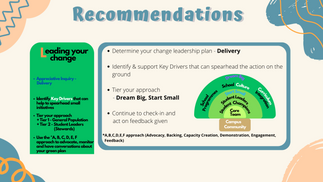#49: STEM Teacher FeST (Science Centre Singapore) - Presentation Reflections & Notes
- Ng Wen Xin

- Nov 10, 2023
- 3 min read
Updated: Dec 19, 2023
Presentation: Gamification & Learning for Sustainable Development
Had the opportunity to share about gamification in enhancing T&L experiences with Science teacher participants at the STEM Teacher FeST.
It was an interesting experience to present the Getting to Zero game to an audience that are not Geography or even Humanities-trained per se, since it would mean that I'll need to put more thought in "selling" the affordances of gamification (given that the context of the game might not be the most relevant or relatable to the crowd).
Pedagogical affordances of game-based learning:
Novelty – enjoyable learning experiences are more likely to hold attention (Martindale & Weiss, 2020; Callahan et al., 2019).
Affective intensity of games stimulate learners cognitively (Vázquez-Vílchez et al., 2021).
Simulation of real world issues allow for authentic learning - simplify complex issues for better communication of ideas (Eisenack, 2012; Pfirman et al. 2021).
Collaborative/competitive component trains players to think strategically and communicate effectively (Cheng et al., 2019; Miller et al., 2019).
Key elements of effective game-based learning:
Gameplay elements that provide information on real world issues in an engaging way
Playing multiple rounds – repetition to reinforce understanding
Building on constructivist learning – students raise questions on what they don’t know/ want to know more about
Facilitation prompts to ensure emphasis of key understandings and objectives
*non-exhaustive!*
My Reflections
Through this session, I am inspired to look deeper into "inter-disciplinary connections". Beyond helping students connect the dots between what they learn in Geography and happenings in real life, it would also be beneficial to help students draw links between what they learn across different subjects.
The thoughtful weaving together of various content areas supports student understanding of the connectedness of knowledge. Cross-curricular teaching also increases student engagement. Not only does it offer a chance to inspire students that are indifferent to one subject by harnessing their passion for another, it also makes academic subjects feel more realistic and relevant.
One of the participants of the session was a secondary school Physics teacher, who shared that she is interested in using the Getting to Zero game to teach the topic on Energy. A quick googling of the O Level syllabus document led me to discover this:

I think it would be cool to get students to do some calculations on the energy efficiency and costs of the various types of energy in Physics class before they play the game in Geography class. This way, they will have:
(1) a deeper understanding of the context of contemporary climate debates, and
(2) the numbers to substantiate the decisions they make during the game.
After conducting countless Getting to Zero workshops with participants ranging from secondary school/junior college students to young adults (up to 35 years old), from local teachers to educators from the Southeast Asian region, it never fails to amaze me how there is always something new that I learn from the discussions that follow the gameplay. And that it the sole reason why I take time to lead/support these workshops - because of my passion for gamified pedagogy.
My Stretch Goal!
I also chatted with a primary school teacher who was leading her school's ALP. She shared that through the ALP, her students designed games related to sustainability. She lamented that the games the students came up with were largely "very simple", e.g. snake and ladder / kahoot-esque, and she was wondering how to help them level up as game designers.
This got me thinking about my own game design experience, and how I started with drawing inspiration from existing card games I have played. I hope to take some time to reflect on and share about the key elements of good game design to help others get started on designing meaningful games.
A C.A.L.M. Approach Towards Sustainability Education in Schools
Presenters: Mr Ameer Ahamed Khan S/0 Amanullah Khan, Mr Ang Jian Hao, Ms Ang Xu Qin Chuliet, Ms Chen Weixuan, Ms Lim Sok Yen, and Ms Ng Ley Tin [CALM Ambassadors from Management and Leadership in Schools Programme (MLS)] Link

























































Comments